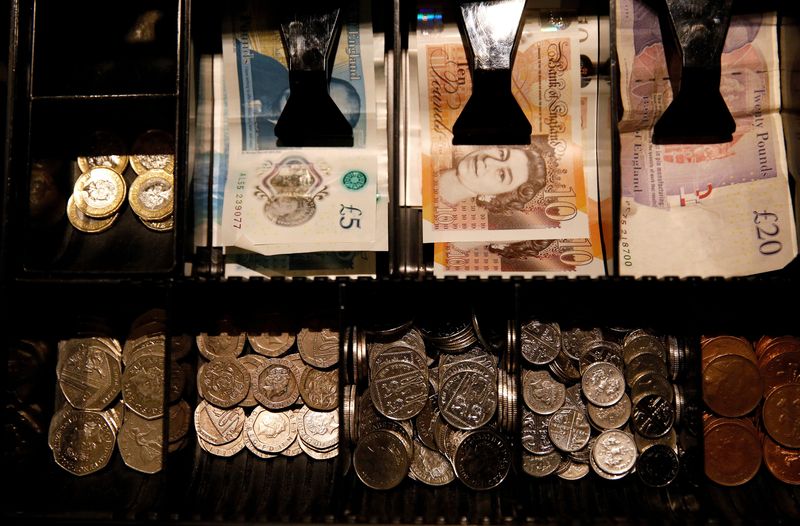By Lucy Raitano
LONDON (Reuters) - Sterling edged up against the dollar on Wednesday, as data showed British consumer price inflation fell to a three-month low of 10.5% in December but remains near 40-year highs.
The pound was up around 0.3% to $1.2327, and was 0.1% lower against the euro at around 87.93 pence.
Currency traders more broadly were focused on the Bank of Japan, which on Wednesday defied market expectations and maintained ultra-low interest rates.
That sent the yen skidding against other currencies and sterling was up 1.6% versus the yen at 160.
The UK's inflation figures were largely in line with consensus expectations, with the downward momentum likely offering some comfort to the Bank of England (BoE) and households struggling with a cost-of-living crisis.
But analysts noted an increase in services inflation and accelerating food and drink prices as cause for some concern for policy-makers.
"It's important to note that core services jumped from 6.4% to 6.8%, a development that the BoE should particularly take into consideration, and when added to yesterday’s wage data should tilt the balance towards a 50 bps hike in February," ING analysts wrote in a note.
The BoE has hiked interest rates nine times since December 2021 to try to lower inflation, and markets are currently placing a 82% chance of a 50 bps rate hike at the next meeting, set for Feb 2.
Official wage growth data on Tuesday showed pay excluding bonuses rose by an annual 6.4% in the September-to-November period, the biggest increase since records began in 2001.
The pound is close to a six-month high of $1.2446 touched last month, but the outlook remains gloomy as recession fears, high inflation and a cost-of-living crisis weigh on the British economy.
RBC currency strategist Adam Cole said his team takes a negative view of the pound, with a longer-term forecast of $1.10.

"Longer-term we are still concerned about the imbalance in the UK economy, and everything that came to the fore in September around the mini budget - many of the issues that highlighted haven’t changed," RBC's Cole said, highlighting the UK’s borrowing deficit and current account deficit.
British markets were thrown into turmoil last September as former prime minister Liz Truss's plan for unfunded tax cuts hurt the country's fiscal credibility.